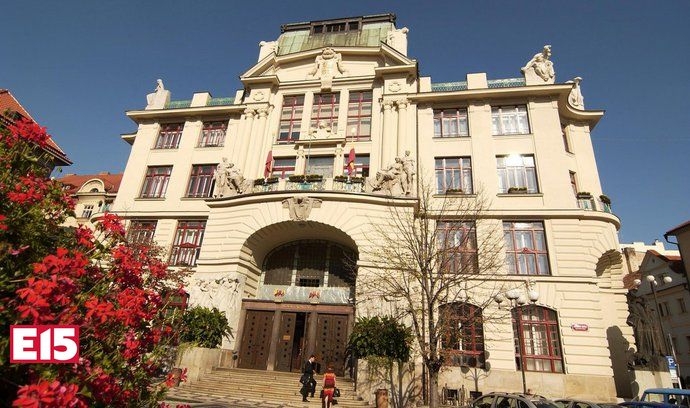Visionary or a retreat to developers? Prague is preparing new rules for construction
Builders are probably waiting for a big change in Prague at the turn of spring and summer. In May, a one-color city council composed of TOP 09 should approve a draft of new Prague building regulations, which have an impact on the appearance of developers in metropolitan areas. However, the opposition claims that the regulations contradict the building law, of which they are an implementing regulation, so they cannot be brought to life.
The draft of the new decree has the ambition to significantly change the rules that investors have so far had to follow in reality. Or they had to ask for exceptions. For example, requirements for the mutual spacing of buildings and land boundaries should be newly defined so that they do not hinder development where it is desired.
This is also related to the deviation from the requirements for mandatory sun exposure of apartments. The number of parking spaces should no longer be specified, but should be determined by the lower and upper limits. Towards the city center, the requirements for the number of mandatory places would be reduced, which should reduce the involvement of individual transport in parts of the city well served by public transport.
The old decree is based on the context of the industrial revolution and supports the spread of the city into the landscape. But the needs of today’s cities are exactly the opposite. The buildings are not solitary and have compact settlements with sustainable demands on transport, technical and social infrastructure, says the author of the new regulations, architect and urban planner Pavel Hnilička, a well-known promoter of the idea of urban densification.
“We don’t have hygiene problems today like we did a hundred years ago. We are bothered by the occupation of land, the decline in the quality of public space, the high cost of transport infrastructure and technical equipment. Unthoughtful requirements for building distances, sun exposure or noise limits negatively affecting the character of new construction. According to current decrees, Ořechovka or Vinohrady would not be able to be built again, “Hnilička performs, which is the basis for approving the regulation.
The new decree does not smell especially of the city districts and the opposition
The new building regulations will change the decree from 1999. 1744 comments were received at the Prague City Hall. “We want to deal with each of them and deal with it,” says Hnilička. The city districts and the opposition in particular react with distrust to the news. There is often concern from individual town halls about the reduction of parking spaces and legal uncertainty. The Prague building regulations are linked to the emerging Metropolitan Plan. Optimistic estimates say it could be approved sometime during 2017.
“I am afraid that what TOP 09 is preparing at the city level would significantly damage the central part of Prague and make them a permanent construction site for several decades. I also do not understand why the prepared decree softened the rules for the construction of parking spaces for new development projects. It smells more like a small home for designers, architects and developers, rather than protecting the interests of Praguers, “says Vladimíra Ludková, Deputy Mayor of Prague 8.
Opposition: The proposal is in conflict with the Building Act
The opposition is convinced, and yet based on the comments of the Ministry of Regional Development, that the entire draft of the building regulations is in conflict with the Building Act, so it is not possible to bring it to life. “The city thus threw away several years of work and considerable funds, which they invested in the preparation of a new zoning plan and Prague building regulations. The TOP 09 policy will once again slow down the development of our city, “states Filip Humplík, chairman of the Prague ODS.
On the contrary, developers usually welcome planned changes and evaluate them as a visionary act. “The authorities should speak in the form of public spaces, but they should leave a looser hand from investors in the construction of the apartments themselves. We will probably have a hard time building dark dungeons at the four-jet stream. We would not sell them, “says Evržen Korec, head of Ekospol. However, according to him, the existing regulations work rather the opposite. Clients who are looking for the cheapest apartment on the subway must also force state parking. Otherwise, they would remain “in stock”.
“It simply came to our notice then. Now we are mainly limited by the requirements for building distances. We consider the degree of sun exposure to be complete survival. Why couldn’t it be oriented to the north with a normal unit, but with a studio where the owner cannot have his permanent residence registered? ”Asks Leoš Anderle, a representative of Sekyra Group.
Unlike Evžen Korec, he is more worried that the new regulations will not limit the maximum number of parking spaces too much. “For luxury apartments, where the client likes to pay extra for two parking spaces, or for administrative areas that are connected to car traffic, we need enough parking spaces,” adds Anderle.
Developers are now wondering how they prepare new projects – will they take care of themselves or are they already following the new rules? “The part of the regulations that is not directly linked to the Metropolitan Plan will apply,” assures Tomáš Ctibor, director of the Institute of Planning and Development of the Capital City of Prague.
They will have to wait for the requirements of the street and building lines, which all have in the spatial planning again a tradition of interconnection of public and private space. “Before we have a greater degree of legal certainty that someone will not successfully challenge our projects for this reason, and we will have to redesign project documentation for tens of millions, we would rather draw according to current regulations,” adds Anderle.



